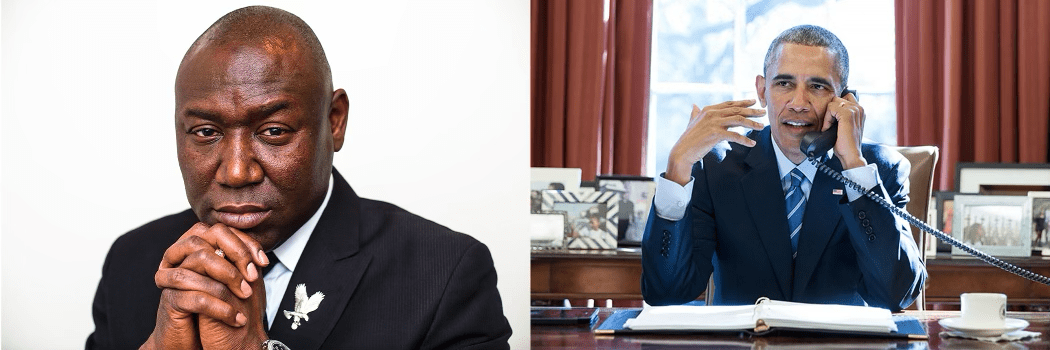Fontana, CA — It was a dark and stormy night…
I’m kidding.
It was actually a really nice and sunny Sunday afternoon when I attended a grand opening of a lounge mixer in Los Angeles—some would call it a day party. The promoters appeared to do an amazing job promoting the event and as anticipated, LA’s most eligible bachelors and bachelorettes showed up in their trendy summer chic attire. The DJ was spinning the right tunes and created an incredible vibe for all to enjoy. I was the guest of one of the promoters as we did our rounds having conversations with the attendees and enjoying the calm crisp air of the outside venue.
At some point I got an appetizer and sat down to enjoy it. I sat adjacent to a couple of women seemingly having a great time. Obviously, I spoke to them and one in particular did most of the talking. It was a friendly exchange of pleasantries, until it took a very interesting turn.
To keep a very basic conversation going without much real intent, I asked the question, “So—how’s life going?” Her response startled me. She responded, “Look—I have two children—21 and 10, they’re both spoiled, I’m 46 and have my own place!” I responded, “Whoa—I’m sorry—I didn’t mean to have you share the specifics of your life like that—I’m just making conversation.” She then shared, “Look—I just like to get it all out up front. I don’t play games, and I’m tired of dealing with men being intimidated by me. I’m intelligent, successful, and that seems to be way too much for men nowadays—they can’t handle me!” I then ask, “So, why do you think they are intimidated and unable to handle you?” She responded, “I have been on my own since I was 14, I raised myself, and now I’m self-made; I own five houses, I drive three cars—all luxury—and I spoil my kids rotten. Men seemingly can’t deal with all that, so I get it all out up front so you know what I’m about.” I thought it was interesting that she figured I was interested in her romantically; but even if I was, her approach was not appealing to me. Then I shared, “Well, you know it’s not all that uncommon for Black women to be well educated with nice careers and assets. I find that to be somewhat common actually.” Then she shared, “Well, I’m not all that nice either. I just don’t play games, nor do I have tolerance for men who can’t deal with a person like me.” I sort of wrapped up our exchange and shared, “You know, men tend to get a lot of their sense of esteem and self-worth through their sense of achievement. So, when your personal achievements such as employment, education, and assets far outweigh his, he may feel as though that it might be an uphill battle trying to bond with you because of your stated achievements. That’s not intimidation—that’s sizing up a situation that he might feel may not be suitable for him, particularly if he feels you wear your achievements as a badge of honor. Moreover, a man really wants a woman that he perceives as feminine. This is not to suggest that her achievements take away from her femininity, but if he senses that she aligns her achievements with her self-worth, that could present a double alpha situation, and no man is going to try to compete with a woman. Not for long at least.” I then excused myself and wished them a happy afternoon.
So why do I share this story? Because if I hear another Black woman say that she can’t find a suitable Black man because they are all intimidated by her success, I’m going to scream. With that said, let’s break this down and look at both sides of this:
Arguments that might support the idea that Black men are intimidated by successful Black women
- Educational and economic mismatch
Educated Black women outnumber educated Black men at higher tertiary levels. This disparity limits partner options and potential compatibility in age, income, and education.
A Yale study showed Black women with post‑graduate degrees are twice as likely as their White female peers to remain unmarried at age 45—this, in part, reflects fewer similarly educated Black men.
Pew Research notes only ~28.6% of Black women are married compared to ~52% of White women—underscoring a tangible dating imbalance.
- Perceptions of wage/status insecurity
Though Black women earn about 89% of what Black men earn on average, the perception of rising Black women’s success can trigger insecurity or “wage-status-insecurity” among some Black men.
- Cultural conditioning of provider role
Black men are often raised believing they must be primary providers. When women “provide for themselves,” it can unsettle traditional gender-role expectations.
- Psychosocial and relationship feedback
Advice arenas frequently suggest men might feel “intimidated” by confident, successful Black women—even if sometimes masking deeper issues such as readiness for commitment, emotional available, or relationship burnout.
Arguments against the intimidation narrative
- Distinguishing insecurity from intimidation
Blogger Jay Thomas argues that Black men aren’t intimidated by the success of Black women per se—they may be insecure about their own position or readiness but not inherently fearful of women’s achievements.
- Underlying personal and relational factors
Some experts stress that relationship breakdowns are more often due to poor compatibility, emotional disconnect, or life-phase mismatches, rather than men feeling eclipsed by women’s careers.
- Deficiency of empirical causal research
Most available research is observational or qualitative (e.g., interviews and surveys), highlighting perceived rather than proven intimidation. There’s no large-scale quantitative study affirming intimidation is widespread or defining its causal role.
- Contextual forces overshadowing gender dynamics
Social barriers—like incarceration, economic instability, and systemic inequality—reduce the number of eligible Black men, shaping dating landscapes independently of women’s success.
Lived Experiences and Social Commentary
There are Black women that have shared stories of being mislabeled as “too much” or “too ambitious,” but those issues often reflect deeper communication and compatibility mismatches.
Counter-voices highlight the role of structural factors—like history and stereotypes (e.g., the “Strong Black Woman,” “angry Black woman” tropes)—which complicate romantic dynamics, rather than success alone.
Yes, some Black men may feel intimidated by successful, educated Black women due to perceived economic role reversals or traditional expectations.
But far more often, relationship challenges stem from personal readiness, emotional maturity, structural limitations, and cultural stereotypes.
Existing research sheds light on perceptions and narratives but lacks causal clarity and large-scale quantification of intimidation. More longitudinal and mixed-method studies are needed to draw firm conclusions.
As the visibility and success of Black women continue to rise across professional, academic, and cultural spaces—many of which were once dominated by men of all backgrounds—it calls for a necessary recalibration from all of us, especially Black men. This is not merely about “adjusting” to their excellence but about honoring it without feeling displaced by it. Yet, a persistent question lingers: when building emotional intimacy, can accomplishments take a backseat to vulnerability and connection? The oft-repeated notion that Black men are “intimidated” by successful Black women is frequently oversimplified and misdiagnosed. Still, it would be disingenuous to ignore the reality that some women, to preserve potential relationships, have felt compelled to downplay their achievements—often to no avail. To our sisters: never shrink your light to make someone else comfortable. To our brothers: let’s create space where Black women can be fully seen, celebrated, and emotionally safe.
This conversation deserves our collective maturity. It’s time to move beyond narratives that fracture us toward ones that truly reflect mutual respect and possibility.







